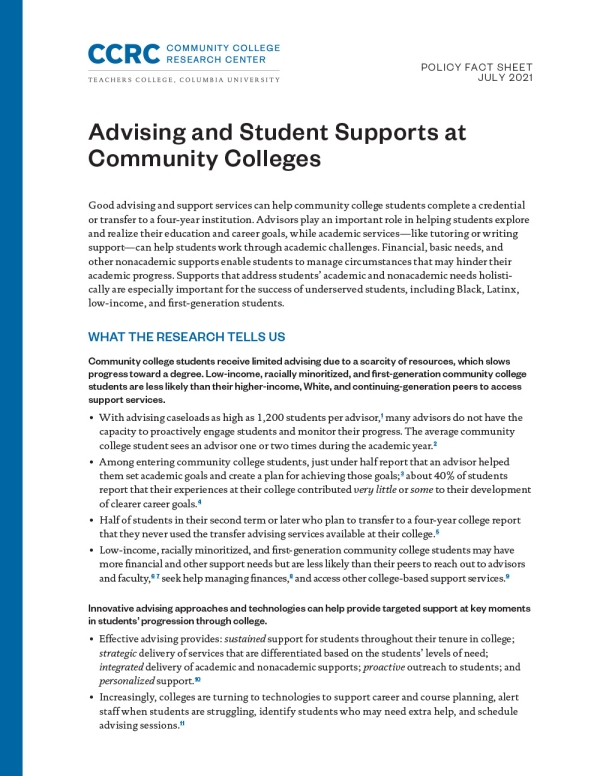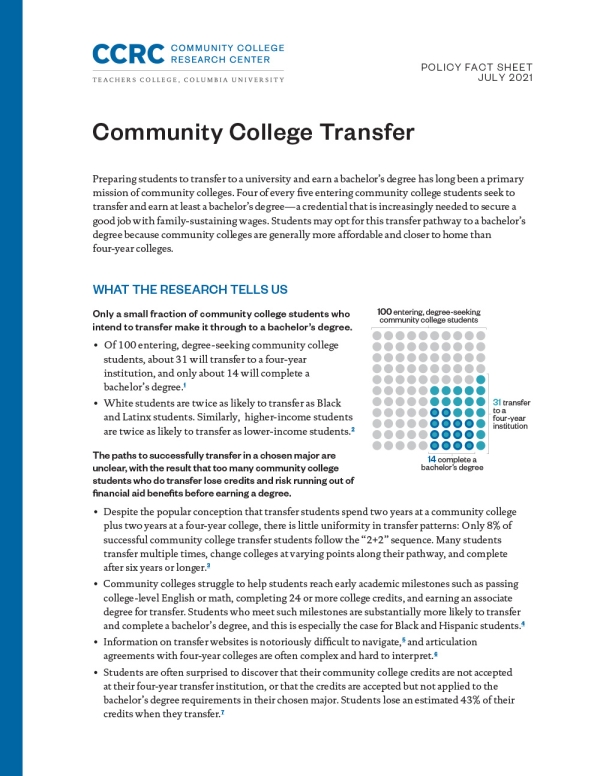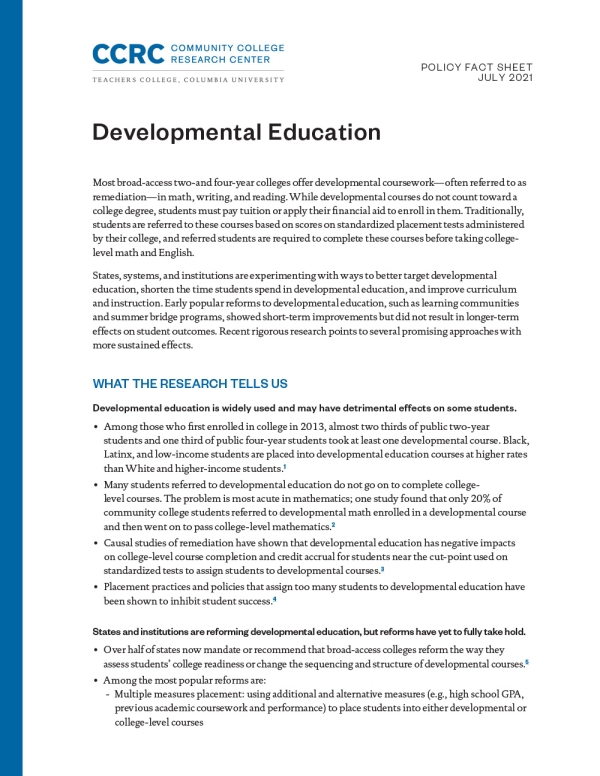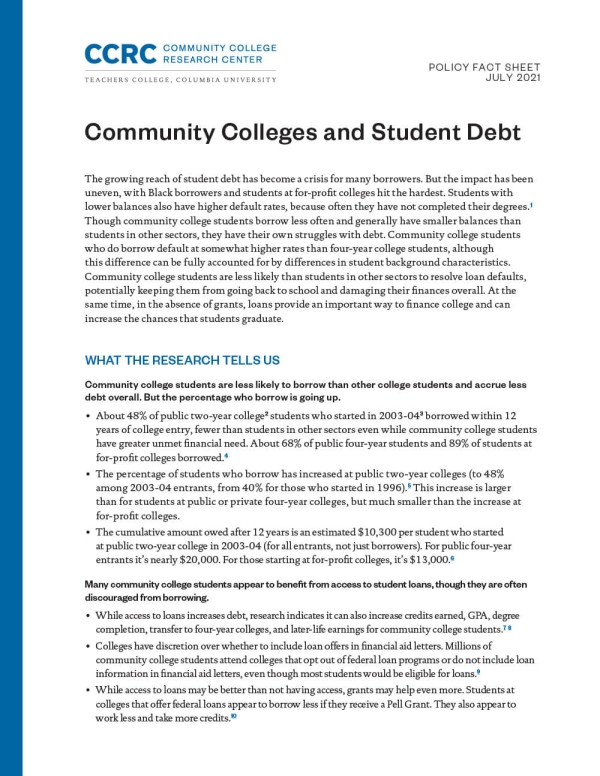Advising and Student Supports at Community Colleges

This fact sheet describes the importance of academic and nonacademic services, particularly for underserved students, and how students that receive targeted, intensive support experience improved outcomes.
Community College Transfer

This fact sheet outlines challenges in supporting successful student transfer from community colleges to four-year institutions and considerations for improving the transfer process.
Developmental Education

This fact sheet describes how traditional developmental education may have unintended consequences for students and the growing body of research evidence on promising reforms.
Participation in Federal Work-Study

This fact sheet outlines how the Federal Work-Study program works, its effects on academic and labor market outcomes, and why so few community college students receive Federal Work-Study aid.
Community Colleges and Student Debt

This fact sheet discusses the rate of borrowing among students in different sectors, how community college students can benefit from access to loans, and the wide disparities in default by race and income.
